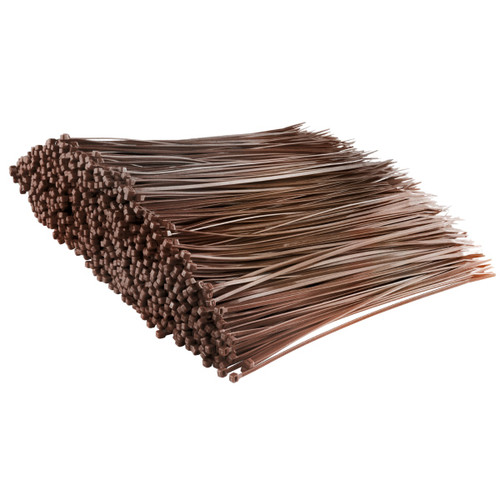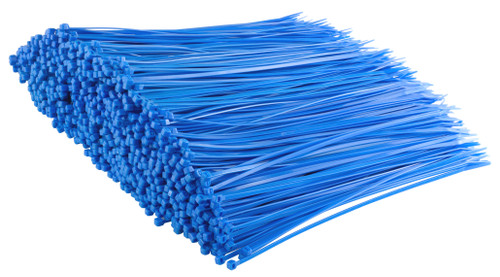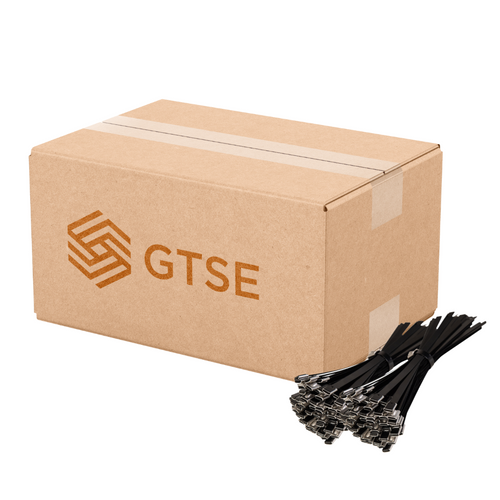-

Green Cable Ties (Bulk Pack of 1,000)
Incl. VAT £5.28 - £270.96Excl. VAT £4.40 - £225.80 -

Brown Cable Ties (Bulk Pack of 1,000)
Incl. VAT £5.28 - £270.96Excl. VAT £4.40 - £225.80 -

Blue Cable Ties (Bulk Pack of 1,000)
Incl. VAT £5.28 - £270.96Excl. VAT £4.40 - £225.80 -

Cable Tie Installation Tool for Stainless Steel Ties - Up to 7.9mm width
Incl. VAT £83.99Excl. VAT £69.99 -

Phase Marking Cable Ties - 200mm x 4.8mm (Pack of 100)
Incl. VAT £9.48Excl. VAT £7.90 -

Stainless Steel Cable Ties - 316 Marine Grade - Box Deal
Incl. VAT £288.00 - £547.80Excl. VAT £240.00 - £456.50 -

5,000 Black Epoxy Coated Stainless Steel Cable Ties - Box Deal
Incl. VAT £513.60 - £735.60Excl. VAT £428.00 - £613.00 -

Black Polyester Coated Stainless Steel Cable Ties - Box Deal
Incl. VAT £409.20 - £881.40Excl. VAT £341.00 - £734.50
FAQ | Cable Ties
What’s the difference between Cable Ties, Zip Ties and Tie wraps?
There’s very little difference between the three, they are all the same product. The main indicator for the name is location. In the US cable ties are more commonly referred to as Zip Ties, whereas in the UK Cable Ties and Tie Wraps are the more common terminology. There also terms to be a difference in the in the terminology by use case. They are more commonly referred to as Tie Wraps in the building trade or warehousing.
What are the strongest cable ties?
The strongest mass market cable ties have a 114KG tensile strength (251lb) This is the strength for the plastic (nylon) cable ties. Stainless Steel Cable Ties are stronger with a tensile strength of 160KG (352lb).We have a full table of the cable tie strengths here.
Which cable ties are the most environmentally friendly?
We have an article covering this here. However usually the most environmentally friendly cable ties are the reusable cable ties, as they aren’t single use. Alternatively the bio degradable cable ties are now being used by many retailer or events companies as a greener option.
When were cable ties invented?
Cable ties were invented in 1956, by a company called Thomas & Betts. Thomas & Betts were an electrical company that did a lot of work on airlines. The original design was patented under the brand name Ty-Rap.



